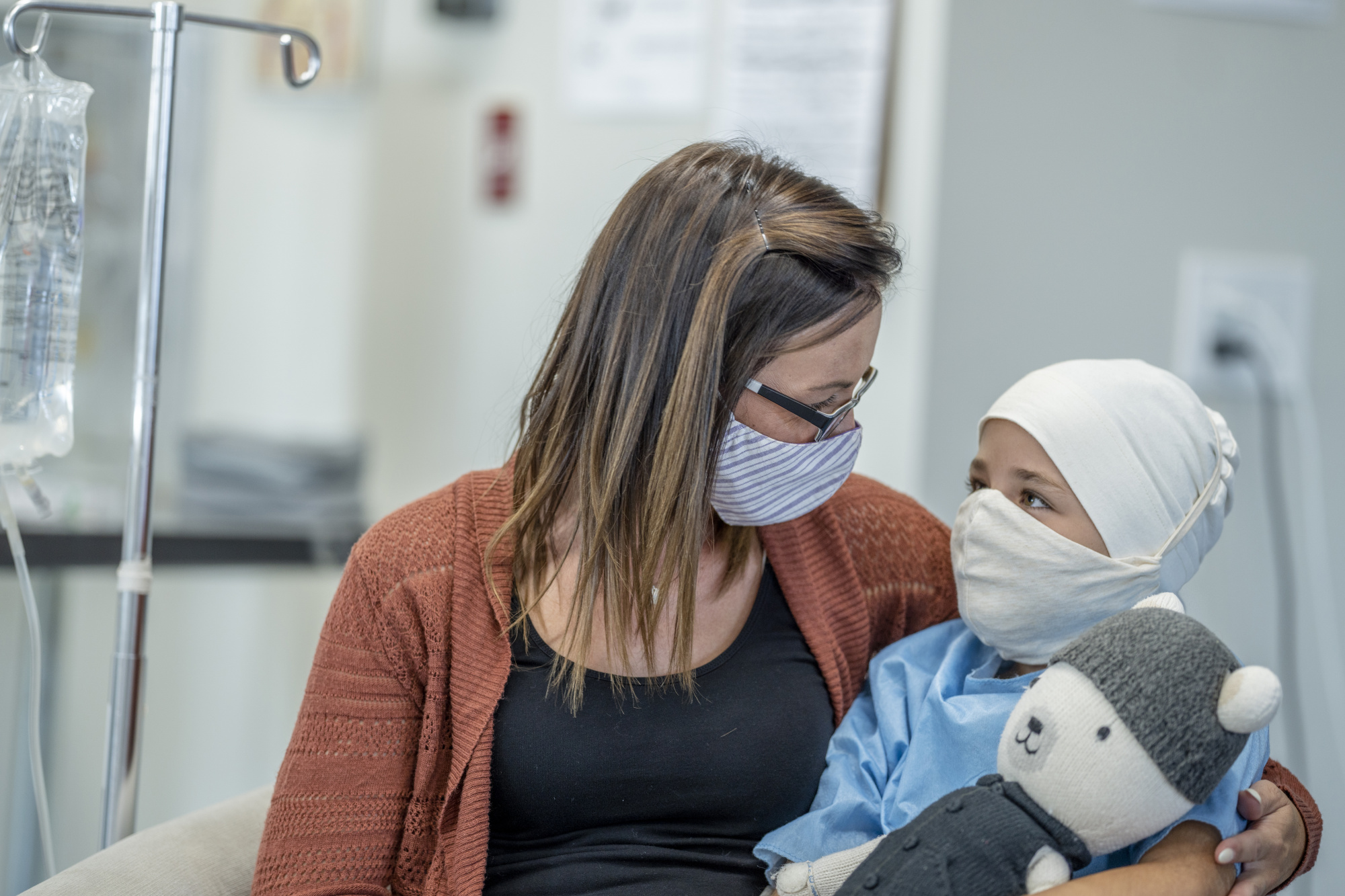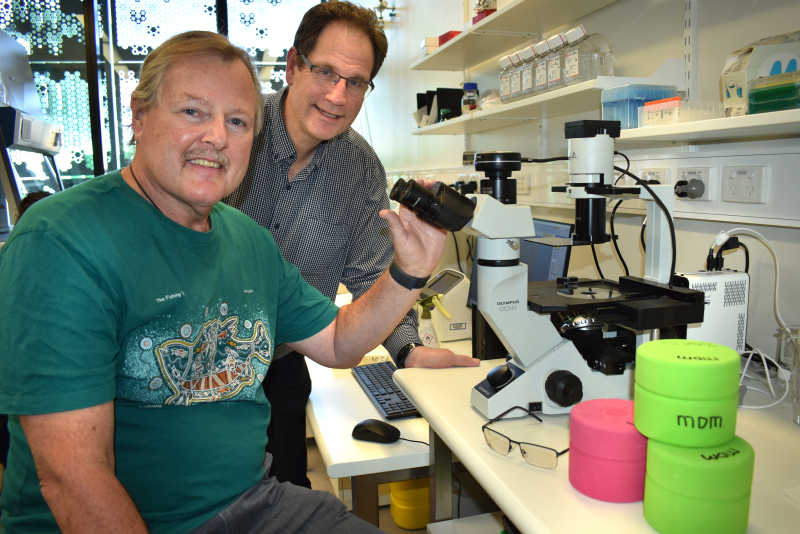
QUT has received almost $700,000 from the Medical Research Future Fund (MRFF) to assess the effectiveness, safe dosage and side-effects of two medicinal cannabis products for managing symptoms in children with advanced cancer.
The three-year trial is expected to start this year and will be led by QUT Adjunct Associate Professor Anthony Herbert who is also director of Children’s Health Queensland’s Paediatric Palliative Care Service.
“We aim to investigate if giving medicinal cannabis to children receiving palliative care for advanced cancer, improves their symptoms such as pain and sleep” Associate Professor Herbert said.
“This group of children may not have long to live, so their quality of life is really important, and we want to know if this intervention can help them in their last weeks or months of life.
“This study will contribute to the limited evidence around the role and safe use of medicinal cannabis in children, which can be used to inform future clinical trials.
“In Australia this will be the first research in children using medicinal cannabis to manage symptoms in children with cancer receiving palliative care. No similar trials have been published in the worldwide literature.
“It is exciting being able to trial new therapeutic options within paediatric palliative care."

The trial will compare different combinations and ratios of cannabidiol (CBD) and tetrahydrocannabinol (THC) to determine which is preferrable in reducing symptoms.
Researchers will measure symptom scores for appetite, lack of energy, pain, drowsiness, nausea and vomiting. They will also measure sleep and activity using actigraphy, quality of life scores, and also anxiety and depression scores.
“We will also look at the total burden of symptoms because the treatment might not affect any one symptom significantly but may help overall,” Associate Professor Herbert said.
“Reducing pain medications, measuring blood-cannabinoid concentrations and other health-related biomarkers of inflammation will form part of the assessments."
Professor Murray Mitchell, from the QUT School of Biomedical Sciences is Head of the Child and Reproductive Health group at the Centre for Children’s Health Research and will coordinate the biomarker measurement and discovery arm of the study.
“We will measure blood levels of cannabis and related substances to eventually optimise treatment schedules and possibly account for variations in success of treatment,” Professor Mitchell said.
“The Centre is uniquely collocated with Queensland Children’s Hospital and critical to the study in bringing together a broad array of experts to conduct the trial and associated studies.”

Researchers will also ask patients, parents and clinicians about their overall impression of treatment benefit.
“The clinical trial will be a win-win because patients will have access to the medicine, but clinicians will also have the opportunity to observe the impacts of medicinal cannabis in a structured and controlled way to see if it has benefits without causing side effects such as drowsiness, or potentially even making symptoms worse,” Associate Professor Herbert said.
He said the trial may be impacted by the relatively small number of children with a cancer diagnosis requiring palliative care.
Each year in Australia, about 770 children aged 0-14 years are diagnosed with cancer in Australia, and about 100 children under the age of 15 years die from the disease.
In Queensland, about 30 children are referred to palliative care each year, so researchers will partner with sites in Newcastle and Melbourne.
Associate Professor Herbert said the study was exploratory in nature, not a definitive randomised controlled study, due to the fragility and small number of children involved.
The trial is expected to provide clinicians and researchers with more experience and research to guide practice and guide the feasibility of a larger more definitive study for clinically or statistically significant differences between products.
Funding formed part of the MRFF - Emerging Priorities and Consumer Driven Research – 2020 Medicinal Cannabis Clinical Trials Grant Opportunity to support clinical trials that examine the effects of medicinal cannabis for the management of pain, symptoms and side-effects of cancer and cancer treatment in cancer patients.
The research is a collaboration between: QUT; The University of Queensland; the Lambert Initiative for Cannabinoid Therapeutics at The University of Sydney; Children’s Health Queensland; Queensland Children's Hospital; Royal Children's Hospital, Melbourne; John Hunter Children's Hospital, Newcastle; and Monash Medical Centre, Melbourne.
Professor Iain McGregor from the Lambert Initiative for Cannabinoid Therapeutics provided timely and expert advice on the trial design as part of the grant application. Professor Janet Hardy and Professor Phillip Good from Mater Health Services also shared their expertise from similar trials in adult patients with advanced cancer.
Chief Investigators
- Associate Professor Anthony Herbert, QUT and Children’s Health Queensland
- Professor Murray Mitchell, QUT
- Associate Professor Natalie Bradford, QUT Cancer and Palliative Care Outcomes Centre
- Dr Alison Bowers, QUT Cancer and Palliative Care Outcomes Centre
- Associate Professor Helen Heussler, The University of Queensland and Children’s Health Queensland
- Mr Michael Duhig, Children’s Health Queensland
- Professor Iain McGregor, Lambert Initiative for Cannabinoid Therapeutics, The University of Sydney
- Associate Professor Helen Irving, Children's Health Queensland
- Dr Geoff Wallace, Children’s Health Queensland
Media contacts:
Novella Moncrieff, 07 3138 1150 or novella.moncrieff@qut.edu.au
After hours: Rose Trapnell, 0407 585 901 or media@qut.edu.au




